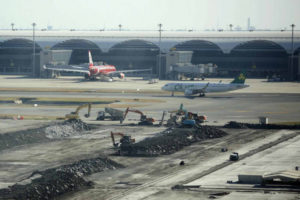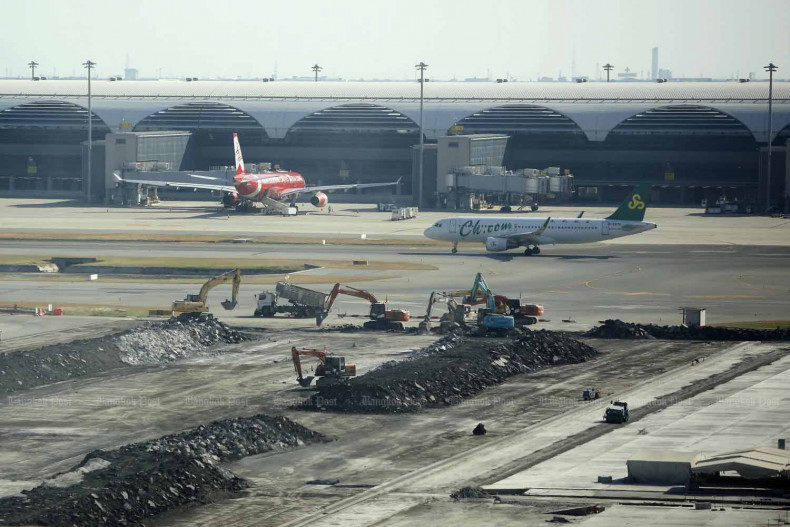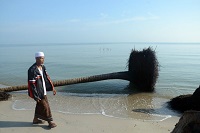
Thai Government calls for more airport slots
Tourist numbers to rise this summer
The Transport Ministry has instructed the Civil Aviation Authority of Thailand (CAAT) to increase the number of airport slots to prepare for an expected surge in foreign arrivals for the summer starting in April.
A slot refers to permission granted to airlines by operators of airports to take off and land during a specified time.
Transport Minister Suriya Jungrungreangkit on Saturday said increasing the number of slots available would attract more flights to the country.
The plan covers Suvarnabhumi, Don Mueang, Chiang Mai and Phuket airports, which are major hubs, as well as other airports nationwide.
According to an initial estimate, the CAAT can increase flight slots by 30–40% to meet rising demand, the minister said.
“The CAAT was instructed to work with Airports of Thailand (AoT) and airline operators to work on slot allocations during rush hour,” he said.
“An increase in flight slots will have positive effects as it will boost the number of passengers.”
Mr Suriya said the ministry expects the aviation industry to continue to recover and return to pre-Covid-19 pandemic numbers soon.
There has been an increasing demand by airlines worldwide for new planes to upgrade and expand their fleets as they emerge from the pandemic’s doldrums, though aircraft manufacturers cannot meet the demand at the moment.
However, there will be more planes available for service within the next few years, and the aviation industry will expand as a result, Mr Suriya said.
He added that Chiang Mai International Airport now operates around the clock as a response to the government’s economic stimulus policies.
Regarding residents’ protest against the airport’s extended operating hours, Mr Suriya said the AoT was instructed to take measures to take care of those affected.
The move comes after residents complained about the damage caused by the excessive noise and vibration from overhead traffic.
Suttipong Kongpool, director-general of the CAAT, said the number of airline passengers has increased by 74%, compared to the pre-pandemic period in 2019.
“The CAAT is confident the number of passengers will reach 162 million as in 2019,” he said, adding that the second half of this year will see a surge in foreign arrivals partly because Chinese and Indian tourists are beginning to travel more after the pandemic.
However, Chinese tourists have not decideed to travel abroad straight away despite Thailand’s visa-free policy for them because China faces economic problems and Beijing is encouraging its citizens to travel domestically first before overseas travel to boost its economy, he said.
“But we believe that Chinese people will start to travel abroad more in the second half of this year,” he said.
Puttipong Prasarttong-Osoth, president of the Airlines Association of Thailand, echoed that view, saying that usually tourism stimulus measures will not take long to yield results.
“Foreign tourists often plan three months in advance before travel. But Thailand’s visa exemption policy for Chinese tourists comes at a time when China is struggling with economic problems,” he said.
“Chinese people may need more time to plan their travel and flight bookings are expected to increase in the latter half of this year.”
Since Mr Suriya took up his ministerial post, he has promised to improve Thailand’s logistics network by focusing on railways, maritime transport and air travel.
A growing number of airlines are planning to operate commercial services in Thailand.
Mr Suriya earlier said he would ask Defence Minister Sutin Klungsang to surrender unused flight slots held by the Royal Thai Air Force at airports under AoT management.
He said that doing so would allow Thailand to increase the number of commercial flights served by airports by 100 to 150 per day.
Slots must be allocated in line with the demand, and at present, commercial airlines need the slots held by the RTAF, he said.
The CAAT determines slot allocation based on each airport’s handling capacity.
Source: https://www.bangkokpost.com/thailand/general/2723542/govt-calls-for-more-airport-slots


